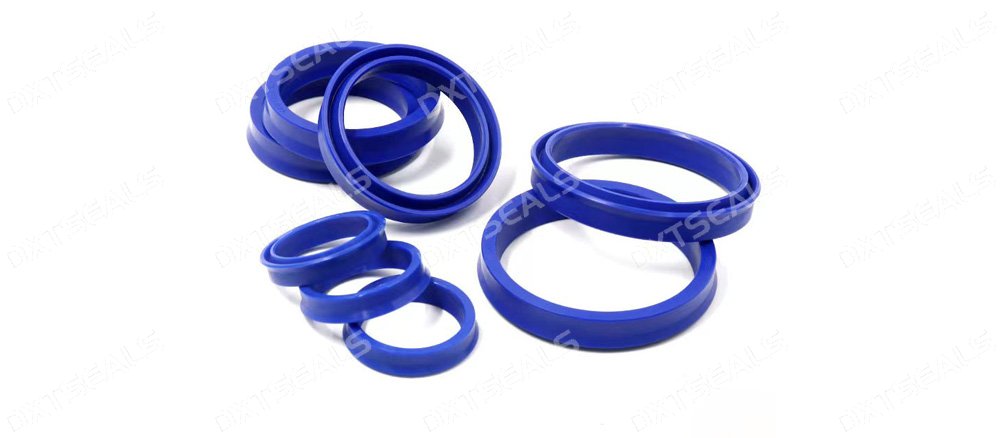
Rubber washers are indispensable in the automotive industry due to their exceptional sealing capabilities, flexibility, and resistance to harsh environmental conditions. From enhancing vehicle performance to ensuring durability, rubber washers play a key role in various automotive systems. This article explores their applications and the advantages they bring to the industry.
Key Applications of Rubber Washers in the Automotive Industry
1. Engine and Transmission Systems
Rubber washers are widely used in engine and transmission systems to:
- Provide effective sealing between components to prevent leaks.
- Minimize vibration and noise during operation.
- Withstand high temperatures and exposure to automotive fluids like oil and coolant.
2. Exhaust Systems
In exhaust systems, rubber washers:
- Seal connections to prevent gas leaks.
- Absorb thermal expansion and contraction.
- Reduce vibration and noise for a smoother driving experience.
3. Suspension and Steering Systems
Rubber washers are integral to suspension and steering systems by:
- Damping vibrations and enhancing ride comfort.
- Protecting joints from dust and debris.
- Reducing wear on metal components.
4. Brake and Fuel Systems
Rubber washers in brake and fuel systems:
- Provide reliable seals to prevent fluid leaks.
- Resist degradation caused by exposure to fuels, brake fluids, and chemicals.
- Ensure consistent system performance and safety.
5. Electrical and Lighting Components
Rubber washers are used in electrical and lighting assemblies to:
- Protect sensitive components from moisture and dust.
- Provide insulation and enhance durability.
- Ensure a secure fit for connectors and housings.
6. HVAC Systems
Rubber washers contribute to the efficiency of heating, ventilation, and air conditioning (HVAC) systems by:
- Sealing connections in ducts and pipes.
- Reducing vibration and noise for quieter operation.
- Withstanding temperature fluctuations in different climates.
Advantages of Rubber Washers in Automotive Applications
1. Superior Sealing Capabilities
Rubber washers are highly effective in creating airtight and watertight seals. This prevents fluid leaks and protects sensitive components, ensuring optimal vehicle performance.
2. Resistance to Harsh Conditions
Automotive environments expose components to extreme temperatures, chemicals, and pressures. Rubber washers maintain their integrity and performance in such conditions, making them ideal for critical systems.
3. Vibration and Noise Damping
Rubber’s flexibility and elasticity absorb vibrations and reduce noise, enhancing driving comfort and protecting mechanical components from premature wear.
4. Compatibility with Automotive Fluids
Rubber washers are resistant to oils, fuels, coolants, and other automotive fluids, ensuring long-lasting performance and minimal degradation.
5. Lightweight and Cost-Effective
Rubber washers are lightweight, contributing to overall vehicle efficiency. Additionally, they are cost-effective to manufacture and maintain, making them an economical choice for automotive applications.
6. Customizable Designs
Rubber washers can be molded into various shapes and sizes to meet specific requirements, ensuring a precise fit and optimal performance in diverse automotive systems.
Common Rubber Materials Used for Automotive Washers
1. Nitrile Rubber (NBR)
- Advantages: Excellent resistance to oils, fuels, and high temperatures.
- Applications: Engine gaskets, fuel system seals.
2. Ethylene Propylene Diene Monomer (EPDM)
- Advantages: Superior resistance to weathering, ozone, and heat.
- Applications: HVAC systems, suspension components.
3. Silicone Rubber
- Advantages: Exceptional flexibility and temperature resistance.
- Applications: Electrical seals, high-temperature applications.
4. Fluoroelastomers (FKM/Viton)
- Advantages: High chemical and temperature resistance.
- Applications: Exhaust systems, brake system seals.
5. Neoprene
- Advantages: Good resistance to weathering and moderate chemicals.
- Applications: Lighting assemblies, exterior seals.
Tips for Selecting Rubber Washers for Automotive Applications
- Assess Environmental Conditions: Consider temperature, pressure, and chemical exposure when selecting materials.
- Ensure Compatibility: Choose rubber types that are resistant to specific automotive fluids and chemicals.
- Focus on Durability: Opt for materials with high wear resistance to extend service life.
- Partner with Experts: Work with experienced manufacturers to ensure quality and performance.
- Test for Reliability: Conduct thorough testing under real-world conditions to verify performance.
Conclusion
Rubber washers are vital components in the automotive industry, offering unmatched sealing, vibration damping, and durability. Their versatility and adaptability make them suitable for a wide range of applications, from engine systems to HVAC components.
By selecting the right rubber washers for specific automotive needs, manufacturers can enhance vehicle performance, reliability, and safety. Whether it’s reducing noise, preventing leaks, or withstanding extreme conditions, rubber washers continue to play an essential role in advancing automotive technology.
For high-quality rubber washers designed for automotive applications, consult with trusted suppliers to ensure optimal results.
